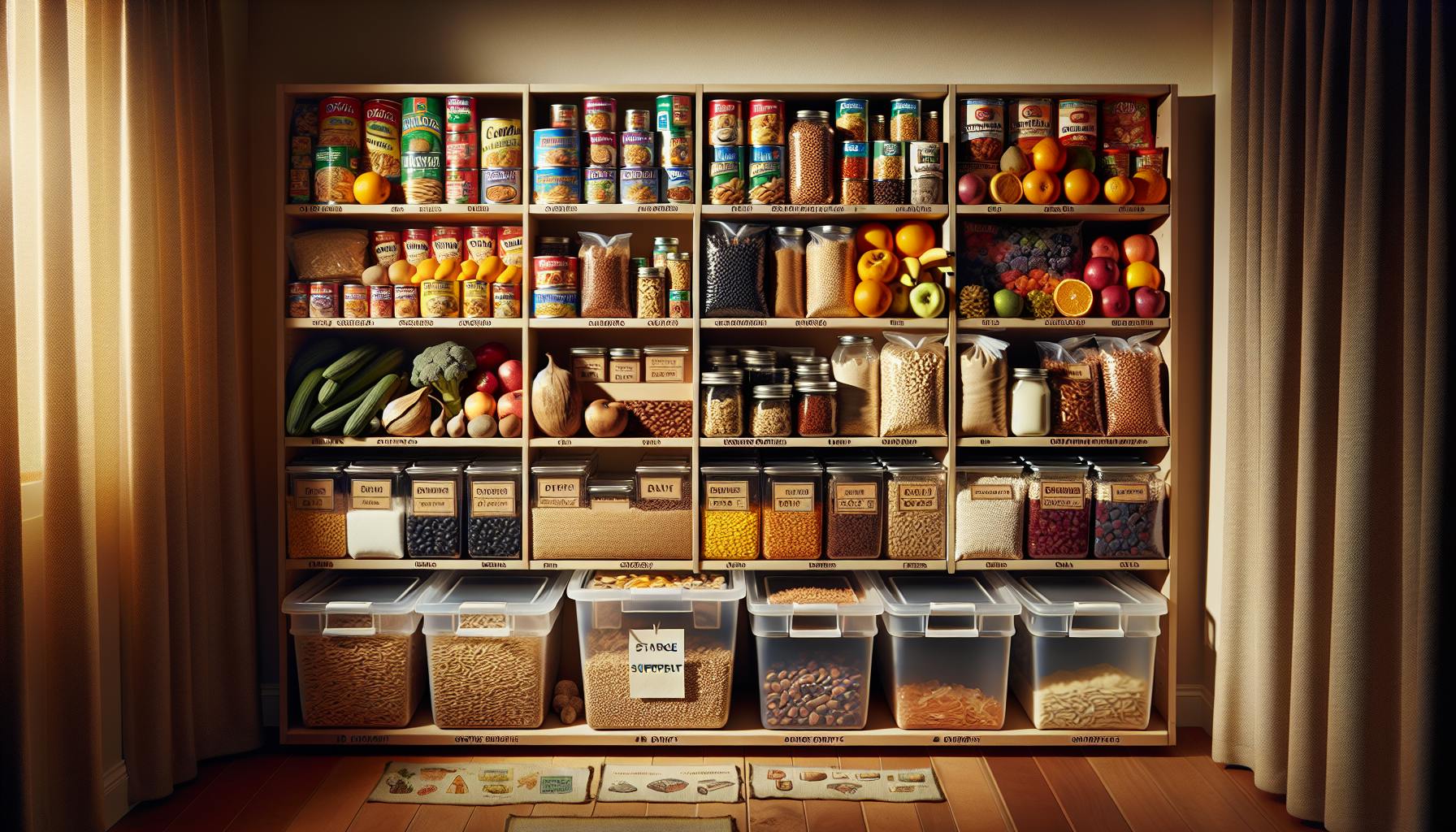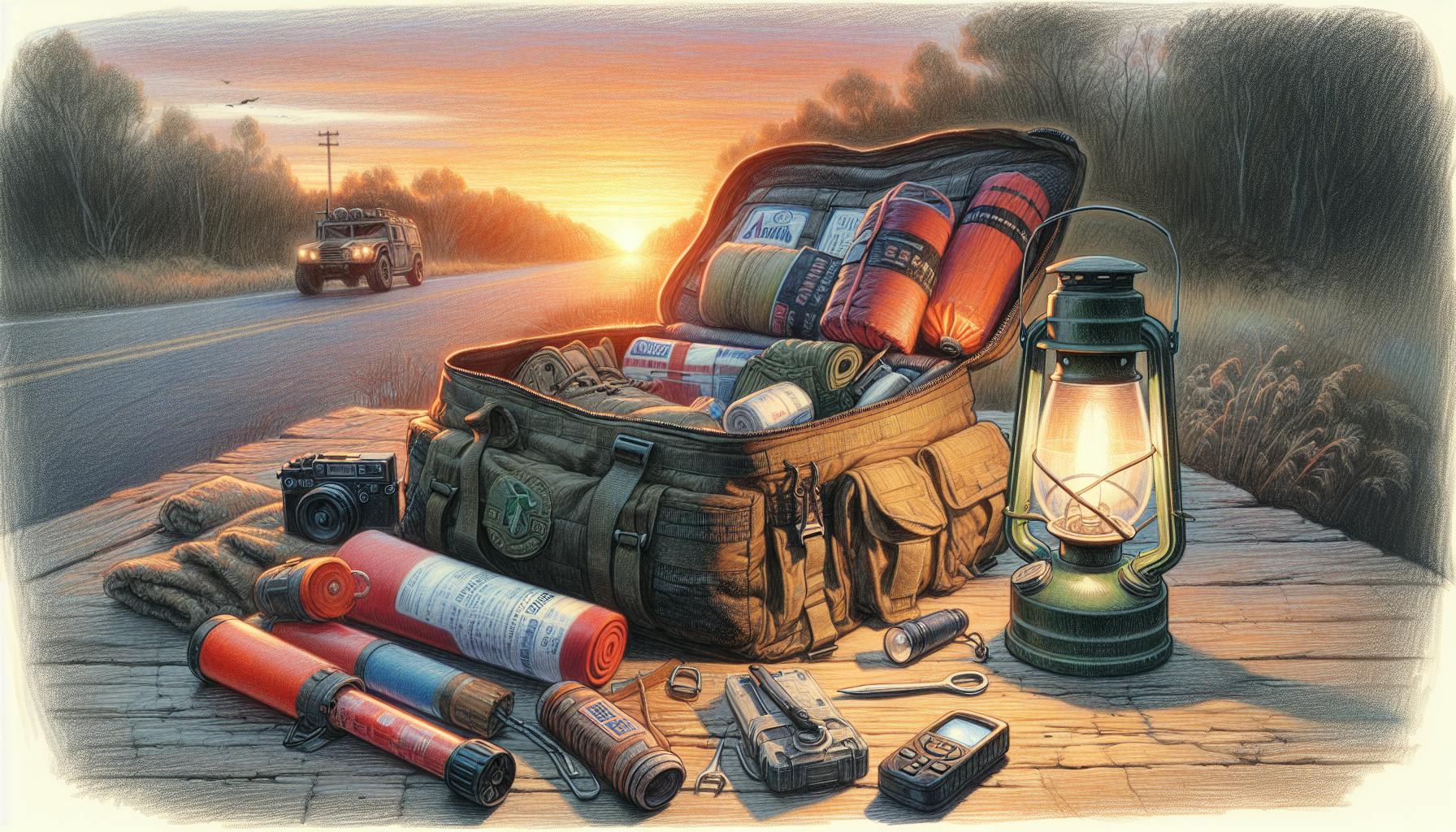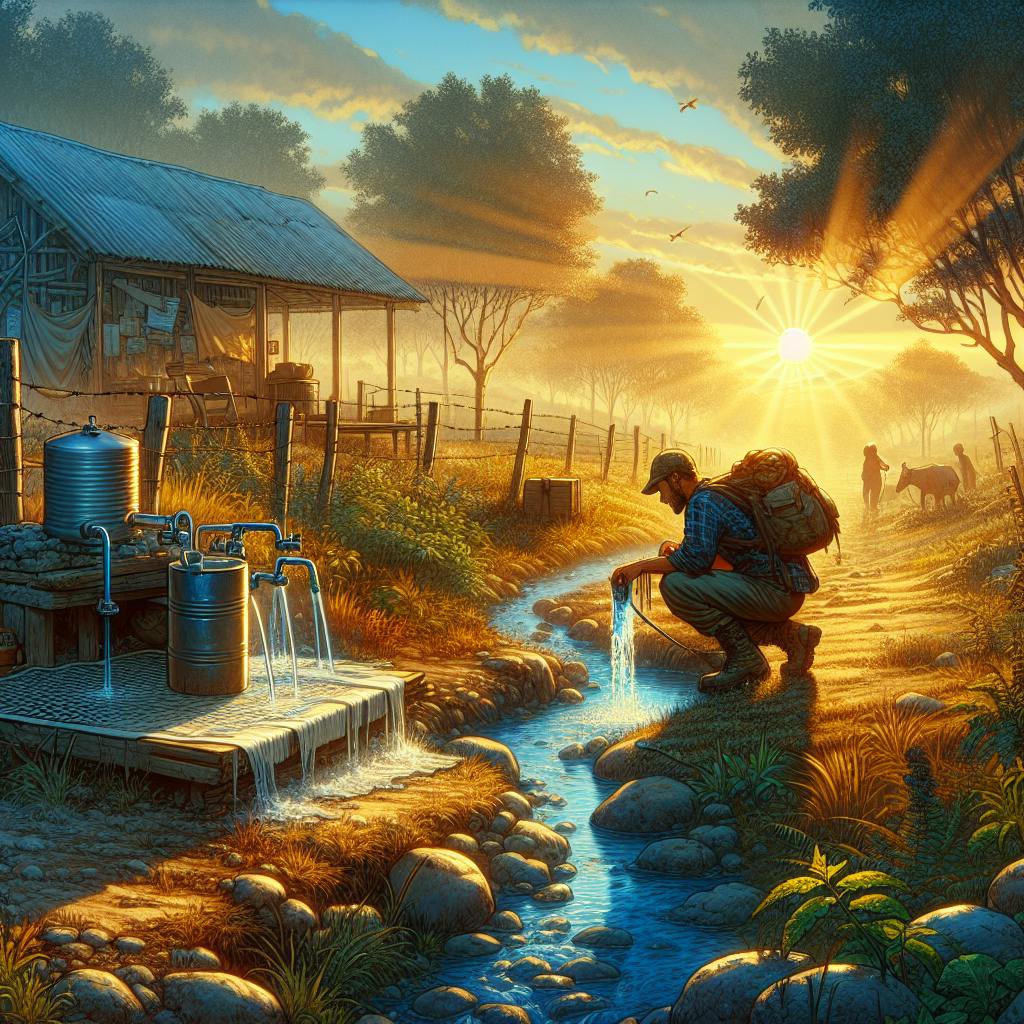Introduction to Canned Food Storage for Preppers
Canned goods are an essential component of any prepper's food storage plan. Having a stockpile of shelf-stable canned foods provides a nutritious and convenient food source when fresh foods are unavailable during an emergency. Canned foods boast an impressively long shelf life while locking in nutrients at peak ripeness through the canning process. When properly stored, most canned goods can safely last 2-5 years for use during a disaster or extended grid-down scenario.
This article from WeLovePrepping will provide an overview of the benefits of canned food storage for preppers. We'll explore optimal rotation and storage methods to maximize shelf life. You'll learn how to build a well-rounded stockpile with the top canned goods for nutrition and convenience. With the right selection of canned foods and proper storage techniques, preppers can ensure access to nourishing meals for years to come.
Benefits of Canned Foods for Emergency Preparedness
Canned goods offer many advantages for disaster readiness and survival:
-
Long Shelf Life: Properly stored canned foods remain edible and safe for consumption for 2-5 years past the printed expiration date. This makes them ideal for stockpiling. For example, canned tuna or chicken can safely last 2-3 years when stored properly.
-
Preserves Nutrients: The canning process locks in a food's nutrients and flavor at its peak ripeness when picked. Canned items retain more vitamins like Vitamin C and minerals compared to frozen or dried versions.
-
Convenience: Canned goods are ready to eat after opening the can. They require minimal preparation or cooking during a time-constrained crisis. Just open and eat!
-
Variety: Hundreds of food items are available canned, allowing for nutritious and diverse meals. Fruits, vegetables, meats, prepared meals, and more can all be canned.
-
Portability: Canned foods are lightweight and pack efficiently. This makes them easy to transport during evacuation or bug out situations.
Shelf Life and Storage Tips
Proper storage is key to maximizing the shelf life of your canned goods stockpile:
-
Most canned goods last 2-5 years when stored in a cool, dry place. High acid foods like tomatoes keep 12-18 months, while low acid foods keep 2-5 years.
-
Inspect cans for damage like dents, rust, or bulging lids. Avoid cans past their expiration date. Discard any cans that show signs of spoilage.
-
Use the FIFO (first in, first out) system to rotate your stockpile. This ensures older cans get used before they expire.
-
Store canned goods in a cool, dark place like a basement or interior closet protected from light. Temperature fluctuations shorten shelf life.
-
Invest in plastic bins or shelving to neatly organize your prepper canned food storage area. A food grade bucket with gamma seal lid also works for bulk storage.
Building a Nutritious Canned Goods Stockpile
When building your prepper canned goods stockpile, focus on nutrient-dense foods. Aim to have at least a 3-6 month supply:
-
Prioritize canned proteins like tuna, salmon, chicken, and beans for a protein source. Stock up on a dozen cans per month.
-
Choose fruits packed in juice or water instead of heavy syrups to avoid added sugars. Go for pineapple, pears, applesauce.
-
Include a variety of canned vegetables like carrots, peas, corn, green beans, and tomatoes for vitamins. Get 5-10 cans per veggie monthly.
-
Stock up on canned prepared meals like Hormel chili, Chef Boyardee ravioli, Progresso beef stew for quick high-calorie options.
-
Nido powdered milk, Eagle Brand evaporated milk, Aroy-D coconut milk add variety and nutrients.
Equipment and Supplies for Proper Canned Food Storage
A few key supplies will help you safely store your canned food stockpile:
-
Shelving or Sterilite plastic bins to neatly organize cans in a cool, dark basement.
-
A Sharpie permanent marker to label cans with purchase date for easy rotation.
-
A Clearstream can rotator from Amazon to make rotating stock easier.
-
A Swing-A-Way manual can opener plus a Chefman heavy-duty opener for large #10 cans.
Top 10 Canned Goods for Every Prepper's Stockpile
These nutrient-dense canned foods deserve a spot in any prepper's pantry:
-
Canned tuna, salmon, chicken - portable protein source. Go for Wild Planet, Chicken of the Sea, Kirkland.
-
Canned beans like Bush's black, Goya pinto, Eden organic kidney - plant-based protein.
-
Del Monte mixed veggies, Green Giant carrots, Del Monte corn, Libby's green beans.
-
Dole canned pineapple, Del Monte pears, Motts applesauce.
-
Campbell's soups like chicken noodle, tomato, Progresso vegetable.
-
Chef Boyardee canned ravioli, spaghetti and meatballs, Hormel chili, Dinty Moore beef stew.
-
Nido powdered milk, Nestle NAN evaporated milk.
-
Hunt's canned tomatoes, Classico pasta sauce.
-
Crown Prince sardines and Brunswick salmon for omega-3s.
-
Folgers coffee, Lipton tea bags, Propel powdered drinks.
Key Considerations When Stockpiling Canned Goods
When building your canned food stockpile, keep these guidelines in mind:
-
Focus on nutritious, high-calorie foods like canned meat, fruits, vegetables, and beans.
-
Check expiration dates and inspect cans carefully before purchasing.
-
Store cans using the FIFO system in a cool, dry place. Use a can rotator.
-
Have the necessary supplies like a manual can opener, Sterilite storage bins, Sharpie marker.
-
Avoid cans high in sodium or added sugars if health issues are a concern.
-
Build up at least a 30-day supply before expanding to long term storage goals.
-
Don't rely solely on canned goods - store other shelf-stable foods too like rice, oats, pasta.
Canned Meat and Seafood Essentials
These canned proteins provide nutrition during an emergency:
-
Tuna, salmon, chicken, turkey, ham for lean protein.
-
Sardines and mackerel provide heart-healthy omega-3 fatty acids.
-
Variety meats like liver offer hard-to-find nutrients.
-
Chunk light tuna contains less mercury than albacore.
-
Canned roast beef, corned beef hash for hearty protein.
Must-Have Canned Fruits and Vegetables
Stock up on a diverse selection of canned produce:
-
Mixed veggies, carrots, peas, beans, potatoes, yams, tomatoes.
-
Pineapple, pears, peaches, applesauce, fruit cocktail.
-
Tomato sauce, pasta sauce, pumpkin puree.
-
Sweet potatoes, creamed corn, sauerkraut.
Canned Dairy and Drinks
Beyond basic staples, also include:
-
Powdered milk, evaporated milk, coconut milk.
-
Coffee, tea, powdered sports drinks.
-
Premade protein shakes like Ensure Plus and Orgain.
-
Broths and stocks for flavor and electrolytes.
Canned Meals and Convenience Foods
Skip cooking with ready-to-eat canned foods:
-
Canned ravioli, spaghetti, chili, beef stew.
-
Baked beans, refried beans. Add instant mashed potatoes like Idahoan.
-
Soups like chicken noodle, tomato, Progresso vegetable.
-
Canned hash like corned beef, turkey hash.
-
Flaked coconut, baking ingredients, pie fillings.
Avoiding Pitfalls When Stockpiling
Be mindful of these potential downsides:
-
Check sodium content if high blood pressure is a concern.
-
Limit added sugars in syrup-packed fruits.
-
Rotate stock every 6 months to avoid bulging, rusty cans.
-
Don't rely solely on canned goods - store other shelf-stable foods too.
-
Have a manual can opener ready for emergencies. Be aware of potential BPA exposure from can linings.
Conclusion
With their impressive shelf life, portability, and nutrition, canned goods deserve prominence in every prepper's food storage plan. Stock up on a variety of meat, fruits, vegetables, beans, and more using proper storage methods. When combined with other shelf-stable foods as part of a diversified stockpile, canned goods will provide nourishing meals through any disaster. Check out WeLovePrepping for more tips on emergency preparedness.


